Making a Better World | Social Innovation
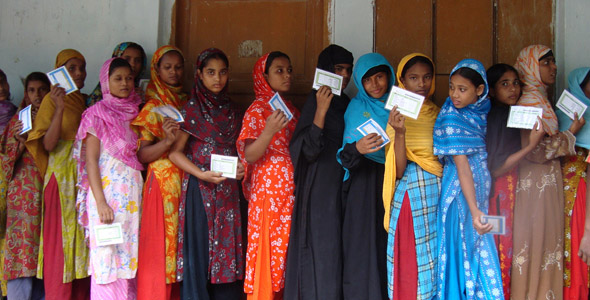
MIT aims to provide the infrastructure and economic opportunity to support a world population of nearly 10 billion by 2050. MIT's social science, arts, and humanities fields contribute to this goal in three primary ways: through the School's Education mission; in Works that enter the marketplace; and through research that leads to better policy and social innovations. This page presents a collection of stories about MIT's social innovations.
Research to Policy | Social Innovation
MIT's social science, arts, and humanities fields contribute to the Institute's innovation goal through vast research portfolio in social innovation — work on political, cultural, historical, and economic factors that inform and guide better public policy across a wide spectrum of issues.
MIT's renowned "research to policy" work is the companion of the "lab to market" work of the STEM fields. Social innovation research includes a focus in these areas: Work and Economic Equity; Global Poverty Alleviation; Governance; Restorative Justice; Civic Engagement; International Affairs; Public Engagement with Science/Technology; and Identity, Culture, and Inclusion.
Empowering every MIT student
MIT SHASS faculty also teach every MIT undergraduate. By empowering MIT students with political, economic, cultural, and historical perspectives — as well as skills in critical thinking, languages, and communication — the School increases the capacity of every MIT graduate to serve the world well, across the broad range of humanity's challenges.
Selected Stories on Social Innovation
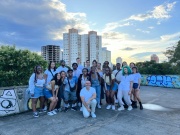
MIT SHASS undergraduates study race, place, and modernity in Brazil
MIT undergraduates visit São Paulo for the Independent Activities Period (IAP) subject “Race, Place, and Modernity in the Americas.
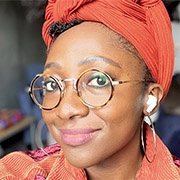
NEW RESEARCH FELLOWSHIP
New Shapiro Graduate Fellowship supports research on the History of the African-American Experience of Technology
HASTS PhD student Kelcey Gibbons is the inaugural recipient.
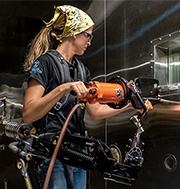
WORK OF THE FUTURE
MIT Economics receives Hewlett Foundation grant to study job quality
Shaping the Future of Work Program will advance research agenda and increase multi-disciplinary cooperation: The program "will analyze forces contributing to the erosion of job quality and labor market opportunity for workers without college degrees...and consider institutional, technological, and policy innovations that can change this trajectory."
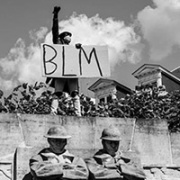
MAKING A JUST SOCIETY
Sustaining the Momentum
Edited by M. Amah Edoh, MIT Professor of Anthropology and Liliane Umubyeyi, co-founder, the African Futures Lab
What will it take to sustain the momentum of movements for racial justice sparked in 2020? Ideas in a new essay collection co-edited by Amah Edoh, MIT Professor of Anthropology, and Liliane Umubyeyi, co-founder/co-director of the African Futures Lab.
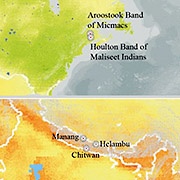
SOLVING CLIMATE
Conversations at the Frontline of Climate Change
Novel communications infrastructure from the MIT Civic Design Initiative aims to support communities on the frontlines of the climate crisis.
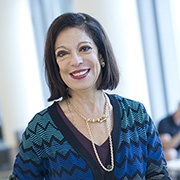
SOLVING CLIMATE
Can the world change course on climate?
A Conversation with Professor Nazli Choucri
MIT Political scientist Choucri discusses challenges and hopes for global coordination on sustainability and climate issues — and the role of political science in the process.
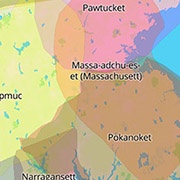
MAKING A JUST SOCIETY
Indigeneity at MIT | A Conversation with David Shane Lowry '03 ('07)
Dr. Lowry is the Distinguished Fellow in Native American Studies at MIT, tasked with leading a conversation at MIT about the actions and responsibilities of the Institute in the history and current realities of Native American communities. A member of the Lumbee Tribe who trained as an anthropologist at MIT, Lowry focuses his research on people and institutions that impact personal and cultural healing.
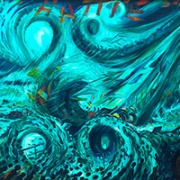
SOLVING CLIMATE
On planetary change and human health
MIT anthropologist Amy Moran-Thomas reflects on the deep connection between planetary and human well-being: “When I think of health now, I think of the disarray in bigger ecosystems and infrastructures that is also landing in human bodies.”
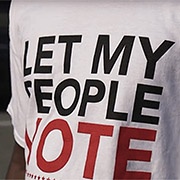
MAKING A JUST SOCIETY
3 Questions: Ariel White on voter rights and re-enfranchisement
"The problems in the Florida case have drawn our attention to how widespread, how life-disrupting, and how racially-disparate the experience of legal debt is for people who have passed through the criminal legal system."
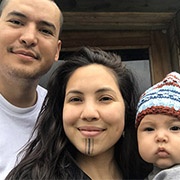
MIT INDIGENOUS LANGUAGE INITIATIVE
Saving Iñupiaq: Annauk Denise Olin
Olin, a graduate student in linguistics, is working to help her Alaska Native community preserve their language and navigate the severe impacts of climate change on their coastal village.
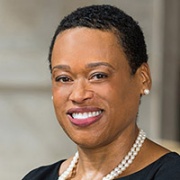
COMPUTING AND AI: HUMANISTIC PERSPECTIVES FROM MIT
Foreword | Melissa Nobles
Dean, MIT School of Humanities, Arts, and Social Sciences, 2015-2021; MIT Chancellor, 2021 —
"With a sense of promise and urgency, we are embarked at MIT on an accelerated effort to more fully integrate the humanistic and technical forms of discovery in our curriculum and research, in our institutional structure, and in our habits of mind and action. Together, the commentaries in this series offer a guidebook to myriad productive ways that humanistic, scientific, and technical fields can join forces at MIT and elsewhere."
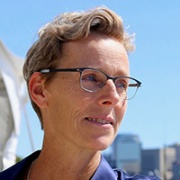
Kate Brown's book is a finalist for the National Book Critics Circle Award
Manual for Survival: A Chernobyl Guide to the Future “is a magisterial blend of historical research, investigative journalism and poetic reportage.” — The Economist
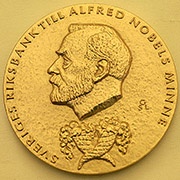
HONORS AND AWARDS
MIT economists Esther Duflo and Abhijit Banerjee win the Nobel Prize
Duflo and Banerjee, whose work has helped transform poverty alleviation, are co-winners of the 2019 Sveriges Riksbank Prize in Economic Sciences in Memory of Alfred Nobel, along with another co-winner, Harvard University economist Michael Kremer.
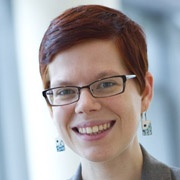
VOTING AND DEMOCRACY
3Q: Ariel White on the impact of incarceration on voting
"The story here is not just about whether people are legally allowed to vote, but about whether they are practically able to vote, whether they know they're allowed to vote, and whether they think they have any reason to do so."
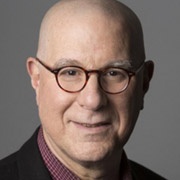
A look at Japan’s evolving intelligence efforts
New book by Richard Samuels examines the past and future of Japanese intelligence services in a rapidly shifting world.
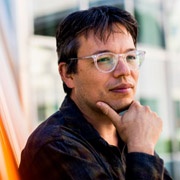
Looking under the surface of politics in Latin America
Associate Professor Danny Hidalgo’s work reveals some difficult truths about money, elections, and political influence.
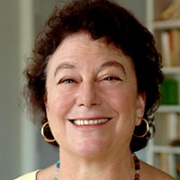
COMPUTING AND AI: HUMANISTIC PERSPECTIVES FROM MIT
Women and Gender Studies | Ruth Perry, Sally Haslanger, Elizabeth Wood
"The Schwarzman College of Computing presents MIT with a unique opportunity to take a leadership role in addressing some of most pressing challenges that have emerged from the ubiquitous role computing technologies now play in our society — including how these technologies are reinforcing and even exacerbating social inequalities."
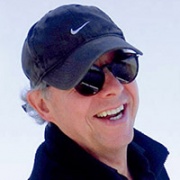
COMPUTING AND AI: HUMANISTIC PERSPECTIVES FROM MIT
Comparative Media Studies | William Uricchio
"Given our research and practice focus, the CMS perspective can be a key one for understanding the implications of computation for knowledge and representation, as well as computation’s relationship to the critical process of how knowledge works in culture — the way it is formed, shared, and validated."

DEMOCRACY
MIT launches Election Data and Science Lab
The lab is dedicated to improving elections, using research, evidence, and analysis. Founded by Charles Stewart III, Kenan Sahin Distinguished Professor of Political Science, the Lab will address multiple audiences of academic researchers, election practitioners, and the general public. It will serve a unique and independent role as it applies scientific principles to empirical questions about the administration of American elections.
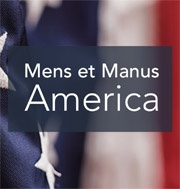
DEMOCRACY
Mens et Manus America Initiative | Portal
This non-partisan MIT initiative convenes research-informed lectures and discussions to explore the major, long-term social, political, and economic issues brought to light in the 2016 US presidential election. We are asking: What can MIT do to help address current challenges in the U.S., and bolster the health of our democracy? Join us as we frame the issues and generate ideas for making a positive impact.
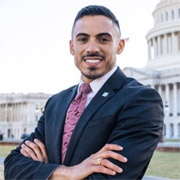
SOCIAL INNOVATION: RESEARCH TO POLICY
Samuel Rodarte '13 | Aero-Astro + Latinx Studies + PoliSci
Shaping Public Policy in the Nation's Capital
With dual MIT degrees in engineering and humanities fields, and a social science minor, Samuel Rodarte '13 could have found a top job in almost any enterprise from startup to multinational corporation. Instead, he chose to join generations of alumni who have put their MIT skills to work shaping public policy in Washington, D.C.
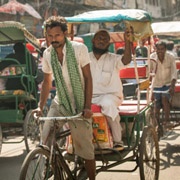
Among India’s working poor, sobriety may boost savings
Economist’s study of rickshaw drivers shows effects of alcohol consumption on financial decision-making.
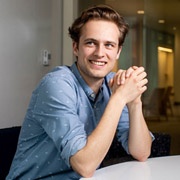
A behavioral economist explores poverty and development
Doctoral student Pierre-Luc Vautrey investigates how incorrect beliefs shape economic decision-making.
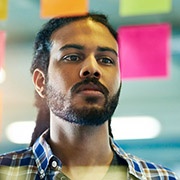
Free, MIT Climate-Related Humanistic Course Materials at MIT OpenCourseWare
Understand and help solve the economic, social, and political dimensions of climate change. Explore climate-related courses from the MIT School of Humanities, Arts, and Social Sciences.
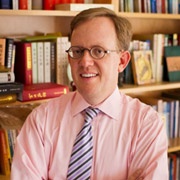
The (evolving) art of war
In new book, political scientist Taylor Fravel uncovers the modern history of Chinese military strategy.
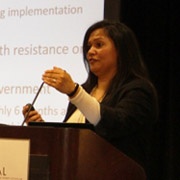
J-PAL North America’s newest initiative explores the work of the future
Nonprofit and industry leaders, researchers, and policymakers gather for a kick-off conference to discuss how to make work more equitable, efficient, and just.
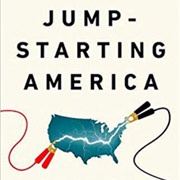
Jump-starting the economy with science
In a new book, MIT professors say more public investment in science will create a better economy for all.
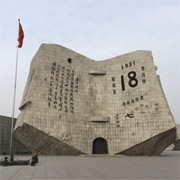
Commerce and coercion
When responding to disputes with foreign powers, China does not speak with one voice, political science doctoral candidate Kacie Miura finds.
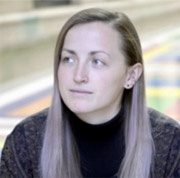
Senior Sarah Tress will tackles poverty with tools from engineering and the humanities
Tress aims to reduce hardships in developing countries using the lens of philosophy.
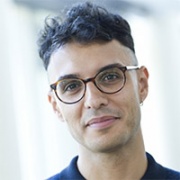
ETHICS, COMPUTING AND AI | PERSPECTIVES FROM MIT
Machine Anxiety | Bernardo Zacka
"To someone who studies bureaucracy, the anxieties surrounding artificial intelligence have an eerily familiar ring. So too does the excitement. For much of the 20th century, bureaucracies were thought to be intelligent machines, with all the positive and negative connotations the term carries."
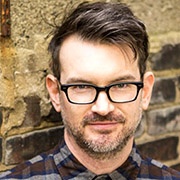
CITIZENSHIP AND THE ARTS
3 Questions with MIT playwright Ken Urban
On theater, science, and the Playwright's Lab
"Understanding others is crucial right now. Of course, understanding is not the same as forgiving or ignoring conflict. But you cannot write convincingly until you care about people who are different from you. That’s what being a playwright has taught me."

Study offers new view of how cartels work
Less data-sharing among firms can actually lead to more collusion, economists find.
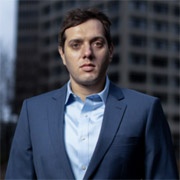
What game theory tells us about politics and society
Economist Alexander Wolitzky uses game theory to model institutions, networks, and social dynamics.
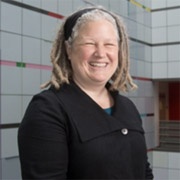
Inside the world of livestreaming as entertainment
T.L. Taylor looks at how computer gaming and other forms of online broadcasting became big-time spectator sports.
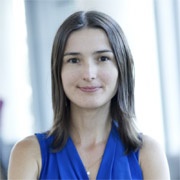
Volha Charnysh examines the aftermath of violence
Investigating the political and economic consequences of large-scale deadly conflict, Charnysh discovers that community-level interactions make a big impact.
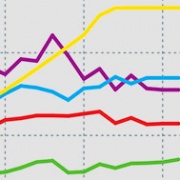
Q&A with economist Thomas Piketty
On globalization and growing inequality
"Globalization today is at a crossroad. It is confronted with major challenges, including rising inequality and global warming. At the same time there is a lot of skepticism about what governments can do to regulate global capitalism. Looking back at previous globalization episodes is critical, first to clarify the specificities of our time." — Thomas Piketty
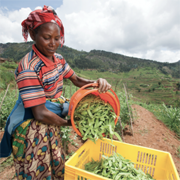
HUMAN HEALTH
J-PAL develops guide to measure women and girls' empowerment
In order to design effective policies and programs, researchers, policymakers, and practitioners must be able to accurately measure women’s and girls’ empowerment. A new research resource from the SHASS-based Abdul Latif Jameel Poverty Action Lab (J-PAL) addresses this challenge.
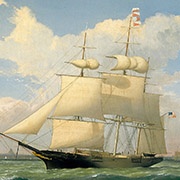
Q&A with historian Anne McCants
About the World Economic History Congress at MIT
"This strikes me as exactly the moment when the work of economic historians is of greatest importance. We have something useful to say about what the disruptions of previous 'waves of globalization' have looked like and how social and political communities have resolved the disruptions of those episodes."
HASTS student discovers hidden stories in Flint water crisis
Graduate student Elena Sobrino looks beyond the headlines to study interactions between the city’s people and institutions.
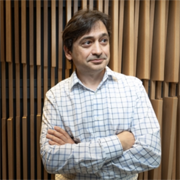
Professor Abadie invents new methods for economic research
Alberto Abadie refines the tools of economics — and gets some interesting results along the way.
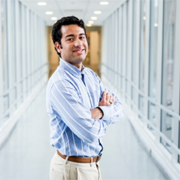
William Rodriguez: Helping others broaden their horizons
MIT senior and Model UN leader William Rodriguez works to encourage the global exchange of ideas
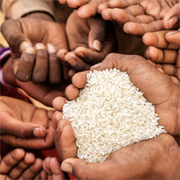
SOCIAL INNOVATION
Two SHASS professors show that for food-aid recipients, information is power
Profs. Olken and Banerjee describe how a simple card explaining a government aid program leads to more rice for poor villagers in Indonesia.
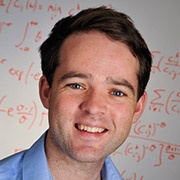
SOCIAL INNOVATION
Economist Dave Donaldson asks: How much does infrastructure boost an economy?
Donaldson's historical study details how railroads helped India trade and grow.
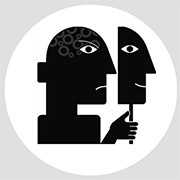
MENS ET MANUS AMERICA | 21st C. CITIZENSHIP
MMA explores fake news and real gender issues
MIT’s Mens et Manus America (MMA) initiative shed light on two major issues on the political landscape — fake news and gender politics — during back-to-back events on April 17 and 18.

MAKING A JUST SOCIETY
MIT and the Legacy of Slavery Project
Stories, Videos, Community Dialogue
“I believe the work of this class is important to the present — and to the future. Something I have always loved about the MIT community is that we seek, and we face, facts. What can history teach us now, as we work to invent the future? How can we make sure that the technologies we invent will contribute to making a better world for all?" — L. Rafael Reif, President of MIT
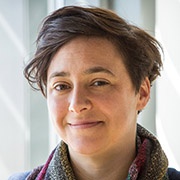
Q&A with historian Caley Horan
On innovation, risk-taking, and cultural transformation
Assistant Professor Caley Horan is an historian of the U.S. interested in the cultural and intellectual transformations of the post-WWII era. SHASS Communications spoke with her about her book manuscript, Actuarial Age, which explores the cultural life of insurance and the role of risk-based thinking in shaping American institutions and daily life during the second half of the twentieth century.
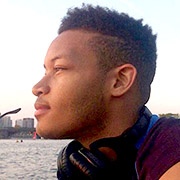
From blank verse to blockchain
The founder of a startup at the cutting edge of computer science, Ryan Robinson ’17 says that his MIT background in the humanities and engineering has helped him understand the human dimensions of the world’s greatest challenges.
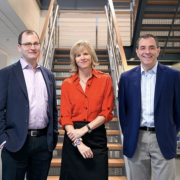
MIT launches Task Force on the Work of the Future
Institute-wide effort will study the evolution of jobs in an age of technological advancement. Members represent fields from engineering and cognitive science to economics, management, political science, anthropology, education innovation, and the history of technology.
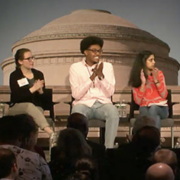
RESEARCH | 21st C. CITIZENSHIP
Institute community explores initial findings from “MIT and Slavery” class.
Students in an undergraduate research course bring the Institute into national conversation about universities and the legacy of slavery. “I believe the work of this class is important to the present — and to the future,” says MIT President L. Rafael Reif. “What can history teach us now, as we work to invent the future? How can we make sure that the technologies we invent will indeed contribute to making a better world for all?"
Facing new facts from MIT's past
Letter from President L. Rafael Reif on MIT and the legacy of slavery
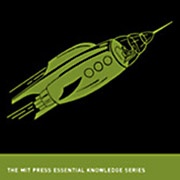
SOCIAL INNOVATION | CITIZENSHIP
3Q: Nick Montfort on shaping the future
“Whether you’re an entrepreneur or in an established business, an activist, writer, or artist: How have people productively engaged the future?”
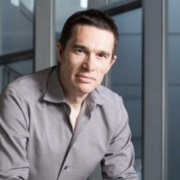
INNOVATION
Innovation, meet organization
Economist John Van Reenen studies the creation and use of technology, from the R&D lab to the workplace.
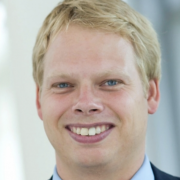
RESEARCH | 21st C. CITIZENSHIP
Why some Muslim clerics become jihadists
In his new book, political scientist Richard Nielsen proposes a “blocked ambition” hypothesis.
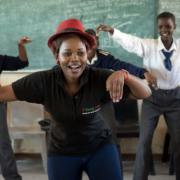
SOCIAL INNOVATION
Course helps girls in Botswana avoid HIV and “sugar daddies”
Youth-to-youth program founded by MIT economist Joshua Angrist teaches girls about the increased odds of contracting HIV from older men.

21ST CENTURY CITIZENSHIP
Connecting through conversation
Whether in Cambridge or Shanghai, MIT senior Joshua Charles Woodard '17 seeks to learn from others’ perspectives and challenge his own.
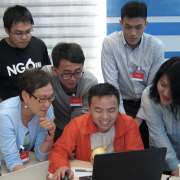
Led by Jing Wang, the New Media Action Lab increases the impact of NGOs across China.
The lab bridges the digital gap to improve social welfare for underserved populations in rural and urban China.
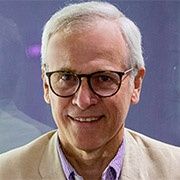
John Durant plans a new era for the MIT Museum
Bridging science, technology, the arts, humanities, and the social sciences MIT Museum Director John Durant makes plans to engage the public with a new purpose-driven museum space.
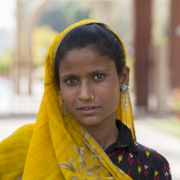
SOCIAL INNOVATION
How J-PAL thinks globally and acts locally
Can an antipoverty program work in different settings? A new report presents a user’s guide to a tough issue.

RESEARCH TO POLICY | CITIZENSHIP
J-PAL North America partners with local governments to tackle homelessness and reduce incarceration
Selected cities and counties will receive funding and technical support from J-PAL to test innovative strategies in the fight against poverty.
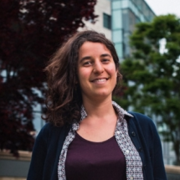
RESEARCH TO POLICY | CITIZENSHIP
Investigating the trap of unemployment
MIT Economics PhD student Aicha Ben Dhia studies France’s labor market from the perspective of local job-seekers.

HEALTH OF THE PLANET
Bolstering public support for state-level renewable energy policies
Analysis shows the design and framing of renewable energy policies can strengthen public support — or opposition.
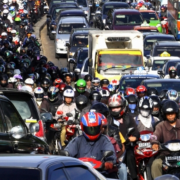
RESEARCH TO POLICY
A simple solution for terrible traffic
Cities plagued with terrible traffic problems may be overlooking a simple, low-cost solution: High-occupancy vehicle (HOV) policies that encourage carpooling can reduce traffic drastically, according to a new study co-authored by MIT economists.
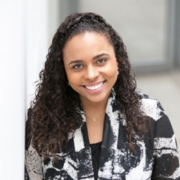
SOCIAL INNOVATION
Building empathy through computer science and art
CSAIL PhD student Danielle Olson creates immersive media to help users understand each other’s backgrounds and feelings.
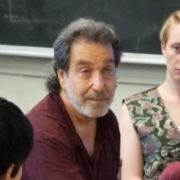
TEACHING AND LEARNING | SOCIAL INNOVATION
Breaking down walls between the ivory tower and prison
The MIT Prison Initiative provides an academic framework for undergraduates and local inmates to explore the human condition.

21ST CENTURY CITIZENSHIP
Breaking through gridlock: productive conversations in a polarized world
A Mens et Manus America conversation with Jason Jay. "We have to have conversations if we are going to effect change," said Jay, who outlined findings from his new book. "We change larger conversations by changing one conversation at a time."
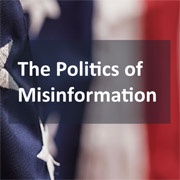
21ST CENTURY CITIZENSHIP
Mens et Manus America examines the politics of misinformation
Exploring current U.S. social, political, and economic challenges: Professor Adam J. Berinsky joined Professor Ezra Zuckerman Sivan to share political science and sociological research about the impact of rumors and falsehoods on America's political process. Agustín Rayo, associate dean of the School of Humanities, Arts, and Social Sciences moderated.
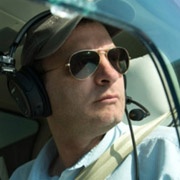
Q&A with historian/engineer David Mindell
On human-centered robotics and innovation
“The new frontier is learning how to design the relationships between people, robots, and infrastructure...The new success of robots will depend on how well they situate into human environments; as in chess, the strongest players are often the combinations of human and machine. I increasingly see that the three critical elements are people, robots, and infrastructure — all interdependent."
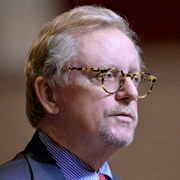
Q&A with political theorist John Tirman
On immigration, collaboration, and the hidden costs of war
"It is remarkable that we do not measure the costs of war in any meaningful way. The costs come in many shapes and sizes: mortality and disability, loss of livelihoods and homes, displacement, the destruction of clean water resources and sanitation facilities, the disruption of education for children, ecological devastation, and many others. All wars produce these results, yet no country, including the United States, has the will to understand and calculate these costs."

SOCIAL INNOVATION
Walley and Boebel receive $195k NEH grant for the Exit Zero Project
Christine Walley, Professor of Anthropology, and MIT-based filmmaker Chris Boebel have been awarded a $195,000 grant from the National Endowment for the Humanities to support the digitization of archives and the Exit Zero Project website.
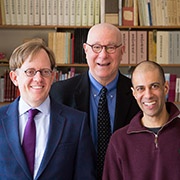
SOCIAL INNOVATION: RESEARCH TO POLICY
Meet MIT's experts in Asian Security
MIT's Asian Security Studies faculty train the next generation of scholars and security policy analysts; counsel national security officials in the U.S. and abroad; and inform policy through publications and frequent contributions to public debates.
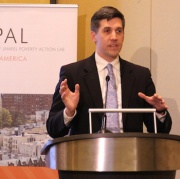
SOCIAL INNOVATION | HUMAN HEALTH | CITIZENSHIP
Government leaders gather at MIT to advance evidence-based policymaking
State and local policymakers joined with leading researchers to share experiences overcoming challenges to evaluating government programs.
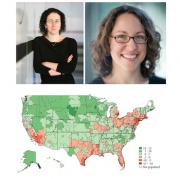
SOCIAL INNOVATION | HUMAN HEALTH
Measuring "diagnostic intensity"
New study maps U.S. regions where patients appear more ill than they are.
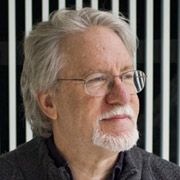
CORE
Edward Schiappa receives the Charles H. Woolbert Research Award
This "test of time" award from the National Communication Association recognizes work that has stimulated new conceptualizations of communication phenomena.

3 Questions with philosopher Kieran Setiya
How philosophy helps us address climate change
"Almost anyone engaged with global issues of human well-being, the distribution of resources, or the future of society is doing moral philosophy Even the most technocratic assessment of costs and benefits makes assumptions about the value of human life and the demands of justice....Making our ethics more explicit, being self-conscious about our principles and premises, improves our moral thinking. This is particularly true when the questions are ones of public policy."

HEALTH OF THE PLANET | CITIZENSHIP
At forum, MIT community tackles tough ethical questions of climate change
Why is it so hard for human beings to address climate change? What can motivate effective action?
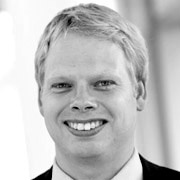
3 Questions with political scientist Richard Nielsen
How political science helps combat terrorism
Richard Nielsen is an assistant professor of political science at MIT SHASS who writes on international law, the political economy of human rights, political violence, and political methodology. His current book project, Deadly Clerics, explores why some Muslim clerics adopt the ideology of militant Jihad while most do not.
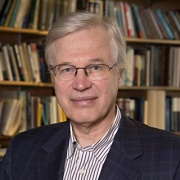
BASIC RESEARCH
Professor Bengt Holmström wins 2016 Nobel Prize in Economics
The 2016 Nobel Prize in Economic Sciences has been awarded to MIT's Bengt Holmström and Harvard's Olvier Hart for their contributions to contract theory. Holmström is the Paul A. Samuelson Professor of Economics in the MIT SHASS Department of Economics, with a joint appointment in the Sloan School.
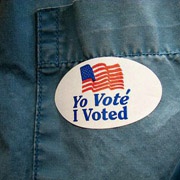
SOCIAL INNOVATION | 21st C. CITIZENSHIP
How healthy is the U.S. voting system?
Professor Charles Stewart III explains why the U.S. electoral system is strong and how MIT research is making the voting process even more seamless. This fall Stewart is leading a nationwide research project: on Election Day 2016, some 800 students from more than 25 universities, including MIT, will be collecting data at polling places across the country, as part of the "Polling Place of the Future" project to help further improve the nation's electoral process.
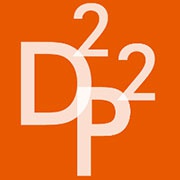
SOCIAL INNOVATION | CITIZENSHIP
J-PAL and MIT Economics launch D2P2 Lecture Series
With their “D2P2: Data. Decisions. Public Policy.” lecture series, J-PAL and MIT Economics aim to increase awareness of their work on campus and in Greater Boston.
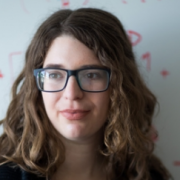
An economist delves into charter schools
PhD student Elizabeth Setren brings data to bear on questions about charter schools and local education policy.
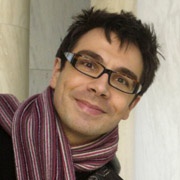
CORE
Bruno Perreau named to the French l’Ordre des Palmes académiques
Bruno Perreau, Cynthia L. Reed Professor of French Studies, has been selected as a member of the prestigious French Academic Palms (l’Ordre des Palmes académiques), the highest distinction for French professors, given in recognition of exemplary academic contributions to French education and culture.

BASIC RESEARCH
Via IDSS, Christia and Jadbabaie collaborate on study of sociopolitical change
With the new Institute for Data, Systems, and Society (IDSS), MIT researchers in the social sciences have an official research platform for collaborating with peers in engineering and the sciences. In this project, social scientist Fotini Christia and civil engineer Ali Jadbabaie join forces to study the evolution of cultural norms and the dynamics of sociopolitical change.

SOCIAL INNOVATION
The Safety Trap: Lack of Secure Investments is Hindering Growth Globally
After the financial-sector crisis in 2007 and 2008, a large portion of investments people had considered safe were suddenly understood to be risky. And yet, the ensuing flight to safe assets, such as U.S. debt, has come with its own cost.
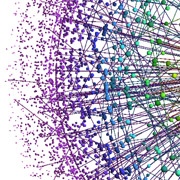
SOCIAL INNOVATION
Education for sociotechnical collaboration
A commentary by Daniel Hastings, the Cecil and Ida Green Education Professor of Engineering Systems and Aeronautics and Astronautics at MIT. To meet today's complex challenges, we need scientists and engineers who have an understanding of social, economic, and political realities and proceses, and equally, planners and policy makers with a solid knowledge of science and technology. What kind of education is needed for such well-informed collaborators?
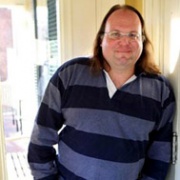
SOCIAL INNOVATION
How can we design sociotechnical approaches for solving the social, economic, and political dimensions of global issues?
Professor Ethan Zuckerman asks, "Is it possible to get beyond both a naïve belief that the latest technology will solve social problems and a reaction that rubbishes any attempt to offer novel technical solutions as inappropriate, insensitive and misguided?"
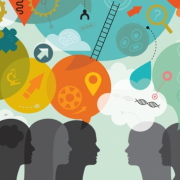
SOCIAL INNOVATION
Why do women leave engineering?
Study co-authored by Susan Silbey, Professor of Anthropology: Women who go to college intending to become engineers stay in the profession less often than men. Why is this? While multiple reasons have been offered in the past, a new study develops a novel explanation: The negative group dynamics women tend to experience during team-based work projects makes the profession less appealing.
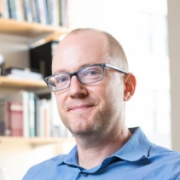
SOCIAL INNOVATION
Political scientist Evan Lieberman studies ethnic identity and African politics
“A big strand in my work has been to think about the important ways in which social identity, especially racial and ethnic identities, become really important in thinking about policies and justice in distributive issues,” MIT political scientist Evan Lieberman says.
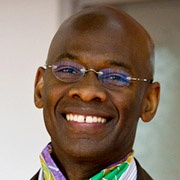
TEACHING AND LEARNING
Remarks by Michel DeGraff, upon receiving the 2016 MIT Martin Luther King Jr. Leadership Award
Michel DeGraff, MIT-SHASS Professor of Linguistics, is a founding member of Haiti's newly created Haitian Creole Academy (Akademi Kreyòl Ayisyen) and Director of the MIT-Haiti Initiative.
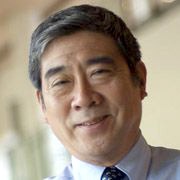
Q&A with political scientist Ken Oye
On the art of socio-technical collaboration
Over the course of 26 years at MIT, political scientist Kenneth Oye has discovered that collaborating with technologists is a very effective way to inform good policy on the issues he cares most about — from climate change to synthetic biology.

SOCIAL INNOVATION | CITIZENSHIP
Christine Walley and Chris Boebel on the Exit Zero Project
The Exit Zero Project, founded by Christine Walley and Chris Boebel, is a transmedia effort to tell the story of the traumatic effect of deindustrialization on Southeast Chicago. The three components of the project — book, documentary film, and in-progress interactive website — use family stories from the once-thriving steel mill communities of Southeast Chicago to consider the enduring impact of the loss of heavy industry and its role in widening class inequalities in the United States.

SOCIAL INNOVATION
Christine Walley and Chris Boebel screen "Exit Zero" at MIT
"Exit Zero, An Industrial Family Story," is a film by by Christine Walley, MIT Associate Professor of Anthropology, and Chris Boebel, Manager of Multimedia Development, in the MIT Office of Digital Learning. The screening takes place on Monday, April 25, in the Bartos Theater, E15-070. Melissa Nobles, Kenan Sahin Dean, MIT School of Humanities, Arts, and Social Sciences, will give an introduction. A reception and discussion with the filmmakers and David Autor, Professor of Economics, will follow.
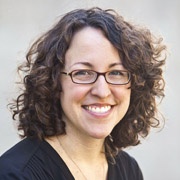
3 Questions with economist Heidi Williams
On the economics of healthcare innovation
MIT economist, and 2015 MacArthur "genius grant" recipient, discusses how updated policies and tweaks to the R&D pipeline could create more drugs for prevention, and for treating cancers at earlier stages.
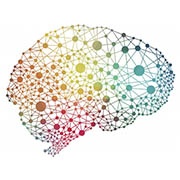
SOCIAL INNOVATION
It's all in our heads
Political science PhD student Marika Landau-Wells is using psychology and neuroscience to better understand political behavior.
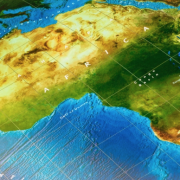
SOCIAL INNOVATION | BUSINESS ECOSYSTEMS
Entrepreneurs returning to Africa find great promise, many challenges
Whatever brings entrepreneurs back to Africa, plenty of challenges arise once they are there, from re-acclimating after time away, to breaking down gender stereotypes in business. And there often remains the hard work of building business networks, communities, and innovation ecosystems.

CLIMATE + HUMAN HEALTH
MIT economics students testing projects to reduce pollution in India
In India, industrial development and rapid urbanization have far outpaced efforts to protect the environment, resulting in levels of air and water pollution that pose major threats to human health. Working with the Tata Center, two MIT-SHASS economics doctoral students are addressing this challenge by generating incentives for polluters to change their ways.
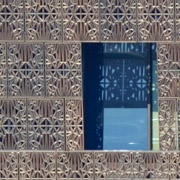
BLACKHISTORY365
Sampler: MIT research and education in African American and African Diaspora Studies
Courses, books, classes, programs, interviews, projects
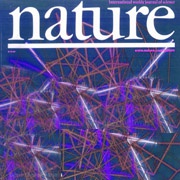
Opinion from the Editors of Nature
Combine sci/tech and humanistic fields
"If you want science to deliver for society, through commerce, government or philanthropy, you need to support a capacity to understand that society that is as deep as your capacity to understand the science."
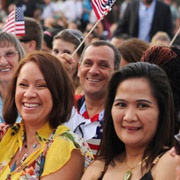
So you want to reform democracy
Reforming democracy is not a technology problem, writes open government activist Joshua Tauberer. It’s not something that a slick website solves. Building power is a social, societal, institutional challenge.
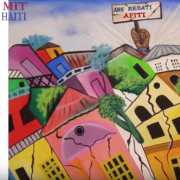
THE HUMAN FACTOR | NATIVE LANGUAGES
The importance of native languages in education
This video provides a short overview of the science and data that show why children's native languages are necessary for learning to read and write — and everything else.
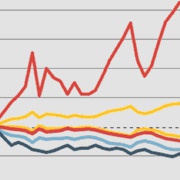
THE HUMAN FACTOR | FAIRNESS
Solve Talks at Google: Rebalancing Inequality
Is there anything we can actually do about growing inequality in the U.S? (Yes!) David Autor, Professor of Economics, and Ian Condry, cultural anthropologist and MIT Professor of Comparative Media Studies, along with Marybeth Campbell, of SkillWorks, explain the causes for U.S. inequality, and what real solutions might look like.

RESEARCH TO POLICY: ECONOMICS OF CLIMATE CHANGE
Study: Trade may not help a warming planet fight its farming failures
A new study co-authored by Arnaud Costinot, MIT professor of Economics and an expert on international trade issues will help countries make better plans for dealing with the impacts of climate change; his research suggests that countries should not rely on international trade to alleviate climate-induced farming problems, but seek other approaches.
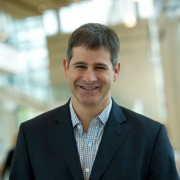
RESEARCH TO POLICY: SOCIAL INNOVATION
Q&A: Chappell Lawson on the MIT International Policy Lab
IPL faculty lead describes the project goals, and invites proposals. IPL will award up to $10K to faculty and PI research staff who wish to convey their research to policymakers.
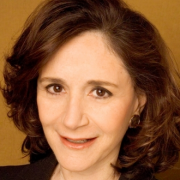
3 Questions with social scientist Sherry Turkle
On “Reclaiming Conversation”
MIT professor makes the case that meaningful, face-to-face dialogue is necessary for human beings to develop self-knowledge, empathy, and cognitive skill.
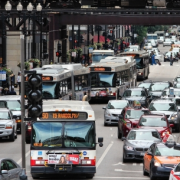
RESEARCH TO POLICY: ENVIRONMENT AND HEALTH
JPAL launches U.S. State and Local Innovation Initiative
A transformative new program from the Abdul Latif Jameel Poverty Action Lab at MIT-SHASS will partner with U.S. state and local governments find solutions to public policy issues across a wide range of social issues including crime, education, employment, health, and housing. Selected governments will receive access to JPAL researchers to help them design and implement randomized evaluations and use the results to make evidence-based decisions for policy that really works.
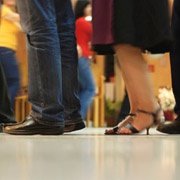
RESEARCH TO POLICY: VOTING TECHNOLOGY
Voting Technology Project releases report: "Managing Polling Place Resources"
Just as the one-year count-down for the 2016 presidential election has begun, the Caltech/MIT Voting Technology Project (VTP) has released a new report — and a set of updated online tools — to help election officials better manage their polling place resources and provide a better experience for voters.
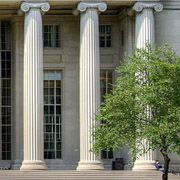
INNOVATION + CORE
MIT named No. 1 university worldwide for social sciences
The Times Higher Education World University Rankings has named MIT the No. 1 university worldwide for social sciences for 2015, 2016, 2018, 2020, and most recently 2021. The MIT SHASS subjects covered in the ranking include political science, comparative media studies, and anthropology, among others.
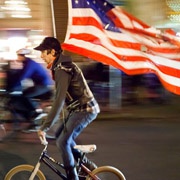
SOCIAL INNOVATION
Sampler of MIT Research on Justice, Economic Equity, Inclusion, Civil and Human Rights
A sampler
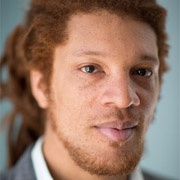
BASIC RESEARCH: ARTS/TECH/SOCIAL INNOVATION
Designing virtual identities for empowerment and social change
Associate Professor D. Fox Harrell awarded $1.35M in grant funding to advance research on at the intersection of social science and digital technology.
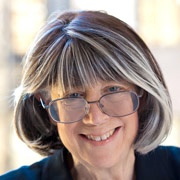
Q&A with anthropologist Susan Silbey
On the role of culture in solving environmental issues
"Transferring the models of physical matter or rational calculation to these massive global problems can do a great deal to help solve our current issues — but only when they are informed by a nuanced understanding of how humans and human organizations operate."
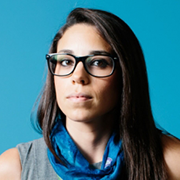
RESEARCH TO POLICY: POVERTY ALLEVIATION
Making banking effective for the poor
In India, PhD student Natalia Rigol aims to tap into community knowledge to vet loan and grant applicants.

RESEARCH TO POLICY
A Sampler of MIT research on Governance, Justice, and Civic Engagement
Research in the humanities, arts, and social science fields is the engine for the School's capacity to effect positive change around the globe. The research of MIT SHASS faculty informs policymaking in many areas, including governance, justice, and civic engagement.
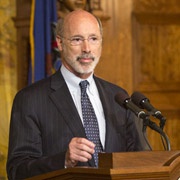
Q&A with Pennsylvania Governor Tom Wolf PhD '81
On making good policy; the politics of global issues
"The search for the answers to society’s most pressing questions always involves a political science dimension. Politics is the art of figuring out what you want to do, how you’re going to do it, and how you’re going to convince others to go along with what you want to do."
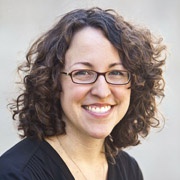
RESEARCH TO POLICY: INNOVATION ECONOMIST
Williams wins MacArthur "genius grant"
Economist who studies the economics of innovation wins $625,000 prize. Williams researches the causes and consequences of technological change in health care markets. Her broad goal is to shed light on the economics of innovation in a context — health care —that has important consequences for human health and welfare, one which is critical to national fiscal policy.
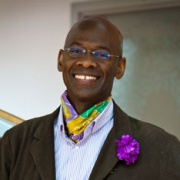
RESEARCH TO POLICY: EDUCATION
Linguist Michel DeGraff is revolutionizing education in Haitian Kreyòl and other local languages
With his MIT-Haiti Inititiave, MIT-SHASS Professor of Linguistics Michel DeGraff is creating a historic new model for reaching science-hungry students around the world who speak local languages. A revolution in education is underway that will touch populations across the globe.
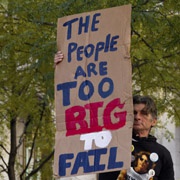
SOCIAL INNOVATION: ADVANCING EQUALITY
Dissolve Unconference: A Summit on Inequality
How can we dissolve the structures of power that produce today’s inequalities?

RESEARCH TO POLICY: WORK & ECONOMIC EQUITY
Work and Economic Equity in the U.S.
A sampler of MIT research on work and economic equity
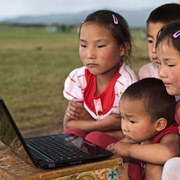
Ethan Zuckerman
On sociotechnical problem-solving
"[W]e should understand that when the problems we’re trying to solve with tech are social, we need sociotechnical solutions that look at the interaction between people and technology."
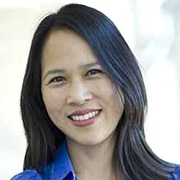
RESEARCH TO POLICY: GOVERNANCE
Lily Tsai receives 2015 Levitan Prize for research to empower citizens
Founder of MIT Governance Lab creates immersive opportunities for MIT students to research new forms of civic engagement around the world.
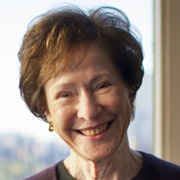
RESEARCH TO POLICY: INNOVATION IN MANUFACTURING
MIT report identifies keys to new American innovation
From “Main Street” firms to multinationals, improvements possible in funding of research, collaboration among manufacturers.
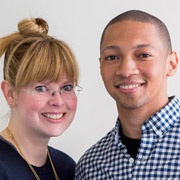
EDUCATION: INCREASING DIVERSITY
MIT grad students organize summer institute to increase diversity in the philosophy field.
The academic pursuit of philosophy (like many other fields) has a serious diversity problem. To help remedy the issue, three MIT philosophy graduate students have organized an innovative program that brought a diverse cohort of undergraduates to the MIT campus this summer, where the students explored the full range of options for pursuing an academic career in philosophy.
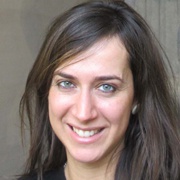
RESEARCH TO POLICY: REDUCING CONFLICT
Fotini Christia receives Carnegie Fellowship for research on conflict/cooperation
MIT’s Fotini Christia, associate professor of political science, is among the inaugural class of Andrew Carnegie Fellows announced by the The Carnegie Corporation of New York. Each fellow will receive up to $200,000 to support research in the social sciences or humanities. Of the project, Susan Hockfield, MIT President Emerita, said “Solutions to the complex issues of today and tomorrow will not emerge simply through technology and science, but require humanistic and social science scholarship to use lessons of the past to devise paths to future peace and progress.”
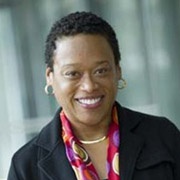
RESEARCH TO POLICY | ADVANCING JUSTICE
3 Questions | Melissa Nobles on advancing racial and restorative justice
Melissa Nobles, Dean of the MIT School of Humanities, Arts, and Social Sciences, and Professor of Political Science, researches historical injustices in democracies. MIT SHASS Communications spoke with Nobles in 2015 about the ongoing aftermath of shooting deaths in Ferguson, New York, and Cleveland, and what her research suggests about the current efforts to advance civil rights in America.
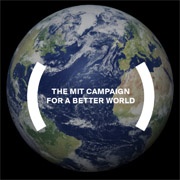
The MIT Campaign for a Better World
Announcing the new comprehensive campaign, MIT President L. Rafael Reif said, "Humanity faces urgent challenges — challenges whose solutions depend on marrying advanced technical and scientific capabilities with a deep understanding of the world's political, cultural, and economic complexities."
Discover the role of MIT's Humanities, Arts, and Social Sciences fields in solving the economic, cultural, and political dimensions of global issues, and in problem-solving in collaboration with our STEM colleagues.

HEALTHCARE
Interview with Seth Mnookin about Vaccination and Public Health
MIT SHASS News: What do you see as the ideal situation for vaccination and public health, and what efforts do you think will be involved in getting closer to that condition?
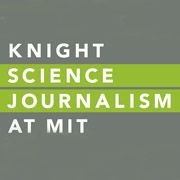
ADVANCING POLICY: PUBLIC ENGAGEMENT WITH SCIENCE
The Knight Science Journalism Fellowships at MIT
Meet the Knight Science Fellow for 2014-2015. This year MIT's Knight Science Journalism program welcomed 11 acclaimed journalists who investigate topics ranging from phenology and climate change, to medicine and human health, to quantum mechanics to hone their science reporting skills. In this article, the Fellows offer their insights on the challenges and rewards of their field.
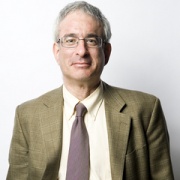
BASIC RESEARCH + SOCIAL INNOVATION
The “metrics” system
Economist’s new book teaches how to conduct cause-and-effect studies on complex social questions.
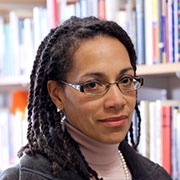
RESEARCH TO POLICY: HEALTH
Global Health & Medical Humanities Initiative launched
“We want to bring together scholars in different fields who don’t normally have a chance to talk to each other,” said Erica Caple James, associate professor of anthropology and director of the Global Health & Medical Humanities Initiative. “With this initiative, we hope to encourage more interdisciplinary collaboration on health matters — teaching together, researching together, and mobilizing the creativity of all five MIT schools, as the Institute continues to develop its future role in improving human health.”

RESEARCH TO POLICY: ECONOMIC EQUITY
Anthropologist Christine Walley receives CLR James Best Book Award for Exit Zero
Associate Professor of Anthropology Christine Walley has been awarded the CLR James Award for Best Book by the Working-Class Studies Association for Exit Zero: Family and Class in Postindustrial Chicago (University of Chicago Press 2013). Exit Zero explores the effects of deindustrialization on Chicago workers and their families.
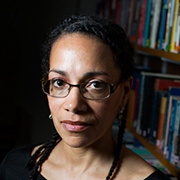
RESEARCH TO POLICY: AID ORGANIZATIONS
The anthropology of humanitarianism
Throughout Eric Caple James’ career as a medical anthropologist, she has specialized in studying people confronted with social, economic, and political uncertainty. James, now an associate professor of anthropology at MIT, has often sought to address a particular question about people placed in such difficulties: Are their psychological and civic needs being addressed by the social organizations that purport to help them?
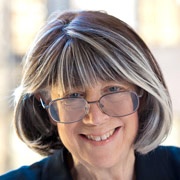
RESEARCH TO POLICY
Female scholars led by MIT anthropologist Susan Silbey illuminate path to commonsense regulation
This research represents a new common sense about regulation that acknowledges the ubiquity of legal regulation, the global circulation of regulation that has transformed its scale, and the role of the organization as the locus of regulation.

SOCIAL INNOVATION: EDUCATION
Hard Math = Powerful Fun
Six years ago when MIT economist Glenn Ellison volunteered to coach his daughter Caroline’s middle-school math team, he hardly realized he would soon become a leading authority in the niche market of advanced mathematics textbooks for elementary- and middle-school students.
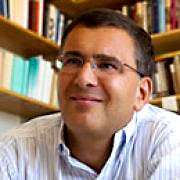
RESEARCH TO POLICY: HEALTH
The health-insurance markets of the (very near) future
“Health insurance is a confusing and difficult choice,” says Jonathan Gruber, a professor of economics at MIT who specializes in health-care issues. “It’s important that people make decisions in an organized and effective market. In that way they can make the best choices, and we can ensure the best level of competition among insurers.”
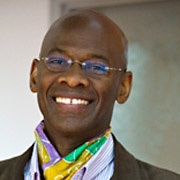
RESEARCH TO POLICY: EDUCATION
DeGraff awarded $1m NSF grant
Michel DeGraff, Associate Professor of Linguistics, is the Principal Investigator for a five-year project that will help develop classroom tools to teach science and math in Haitian Creole for the first time.
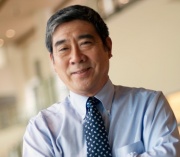
RESEARCH TO POLICY: SMARTER REGULATORY SYSTEMS
In Profile: Kenneth Oye
Associate professor in MIT’s Department of Political Science and the Engineering Systems Division, Kenneth Oye is an expert in the way governments assess the potential risks posed by new technologies. His work makes the case that for regulatory systems that are designed to incorporate advances in knowledge.

BASIC RESEARCH
Rosalind Williams: on the "Human Empire"
An historian who finds evidence and insight in literature, Rosalind Williams, Dibner Professor of the History of Science and Technology, recently completed a book examining the critical juncture when human endeavors began to dominate the planet as never before. Forthcoming from the University of Chicago Press (2013), The Triumph of Human Empire, explores this turning point in history and technology through the works of three writers from the late 1800s.

SOCIAL INNOVATION + EDUCATION
Communication Forum conducts a conversation for scholars, citizens
How are new technologies transforming public discourse? Are traditional news outlets still influential in framing the news we get online? What are the legal dangers for publishing secrets in the crowd-sourced era? Founded in 1978 by pioneering media scholar Ithiel de Sola Pool of MIT’s Political Science Department, the forum engages leading scholars, journalists, media producers, and citizens in discussions on emerging media in a changing world.
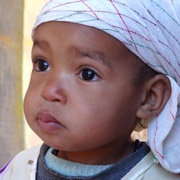
RESEARCH TO POLICY: ENDING GLOBAL POVERTY
Finding the pulse of the poor
Armed with data, an MIT lab offers fresh insight on some of the world’s most vexing problems. For nearly a decade, MIT economics professors Esther Duflo, and Abhijit Banerjee, have worked with a global network of researchers to conduct experiments in the world’s poorest places - where families live on less than $1 day - and reached conclusions that are changing the way economists and policy makers think about development in impoverished areas.
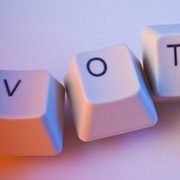
RESEARCH TO POLICY: INFRASTRUCTURE FOR DEMOCRACY
Election Integrity: What it takes to make every vote count
Eleven years after the disputed 2000 presidential election thrust the subject of electoral integrity into the spotlight, many of the challenges that jeopardized that election remain unresolved, voting experts said at an MIT-hosted conference. “Election Integrity: Past, Present, and Future,” was convened by the Caltech/MIT Voting Technology Project (VTP), and brought together election administrators, academics and technology professionals from around the country. A central theme of the conference was election integrity: assuring that votes are both recorded and counted as they were cast.
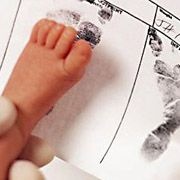
RESEARCH TO POLICY: HEALTH INSURANCE
MIT economists Finkelstein and Gruber demonstrate the health and financial benefits of Medicaid
Landmark study shows the effects of health insurance program: much better health and more financial stability for the poor; more bills paid for hospitals and doctors. Professors of Economics Amy Finkelstein (a principal investigator) and Jonathan Gruber contributed to the study.
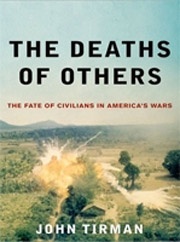
RESEARCH TO POLICY: CIVILIANS IN WARFARE
In The Deaths of Others, John Tirman explores fate of civilians in America's wars
Americans are greatly concerned about the number of our troops killed in battle — 100,000 dead in World War I; 300,000 in World War II; 33,000 in the Korean War; 58,000 in Vietnam; 4,500 in Iraq; more than 1,000 in Afghanistan — and rightly so. But why are we so indifferent, often oblivious, to the far greater number of casualties suffered by those we fight and those we fight for? This is the compelling, largely unasked question that John Tirman, a principal research scientist and executive director at the MIT Center for International Studies, answers in The Deaths of Others.
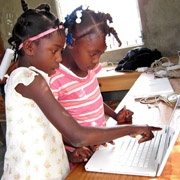
RESEARCH TO POLICY: TRANSFORMING HAITIAN EDUCATION
A champion of Kreyol for Haitian schools
Linguist Michel DeGraff is on a quest to give Haitian Creole its due as a respected language — and to help Haitian schoolchildren learn in their native tongue.

RESEARCH TO POLICY: ECONOMICS
Economics Symposium launches MIT's 150th celebration
This symposium, organized by the School's Department of Economics and the Sloan School of Management, celebrated the role of MIT’s faculty and students in advancing the fields of economics and finance, in putting the latest developments into practice, and in contributing to the design of public policy.
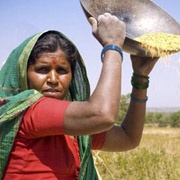
RESEARCH TO POLICY: ALLEVIATING GLOBAL POVERTY
How can we help the world's poor?
New York Times on J-PAL's major contribution
Discussing the intense, contemporary debate about "how best to help poor people around the world," Nicolas Kristoff writes: "...recently there has been a revolution in evaluation, led by economists at the Poverty Action Lab at MIT."

RESEARCH TO POLICY: CHARTER SCHOOLS
Why do some charter schools do so well?
MIT economists researching why some Boston charter schools have been able to produce stunning results. What they discover could serve as a lesson for America’s struggling public schools.
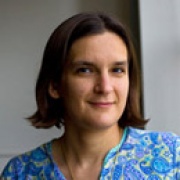
CORE + SOCIAL INNOVATION
Esther Duflo receives MacArthur "genius" grant
Duflo, whose research has helped change the way governments and aid organizations address global poverty, has received a 2009 MacArthur Fellowship Grant. Duflo is the Abdul Latif Jameel Professor of Poverty Alleviation and Development Economics, and director of the Jameel Poverty Action Lab (J-PAL). More
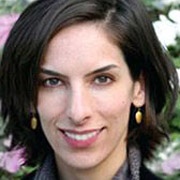
RESEARCH TO POLICY: ADDICTION
Natasha Schull examines technology and gambling addiction
Natasha Schull, Assistant Professor in the Program in Science, Technology, and Society, observed that gamblers become transfixed for hours at video poker and slot machines. What, she wondered, kept them glued to machines until they lost all they had to lose? Schull is publishing her conclusions that proprietary mathematical algorithms and immersive technology are used to keep people gambling until they—in the industry jargon—"play to extinction."